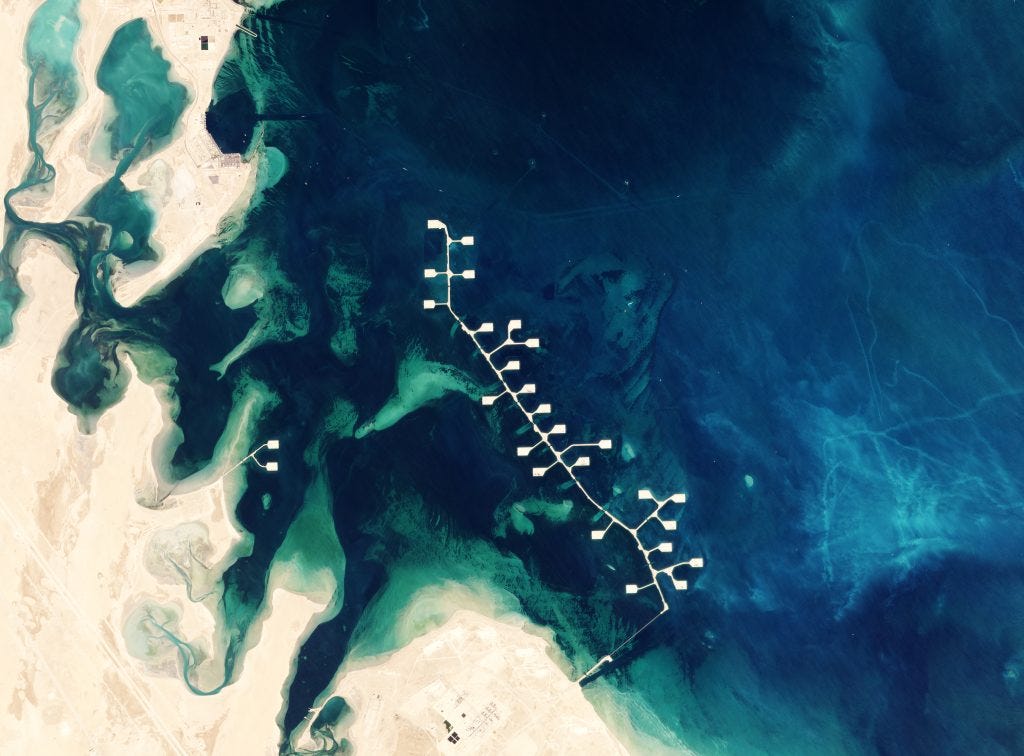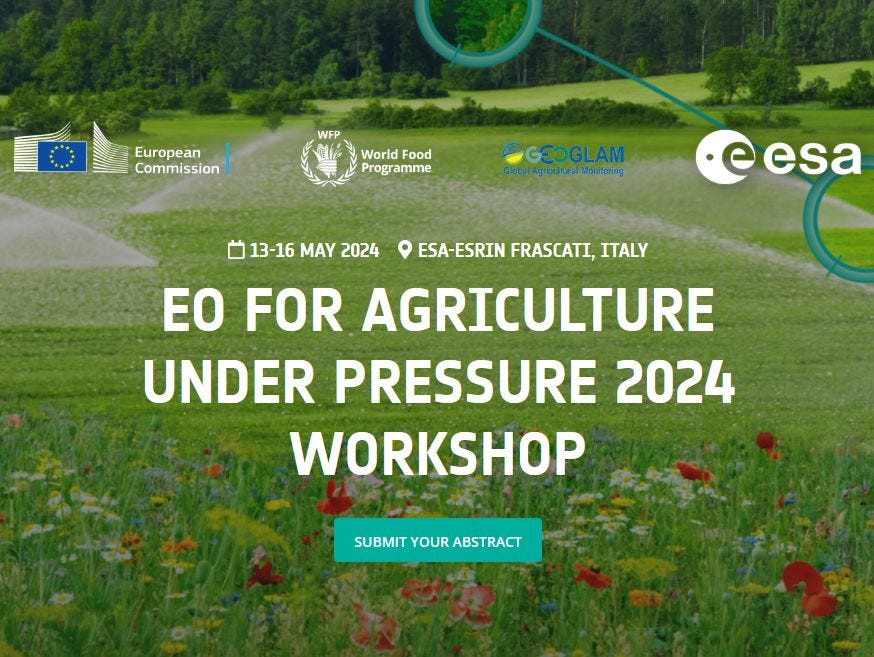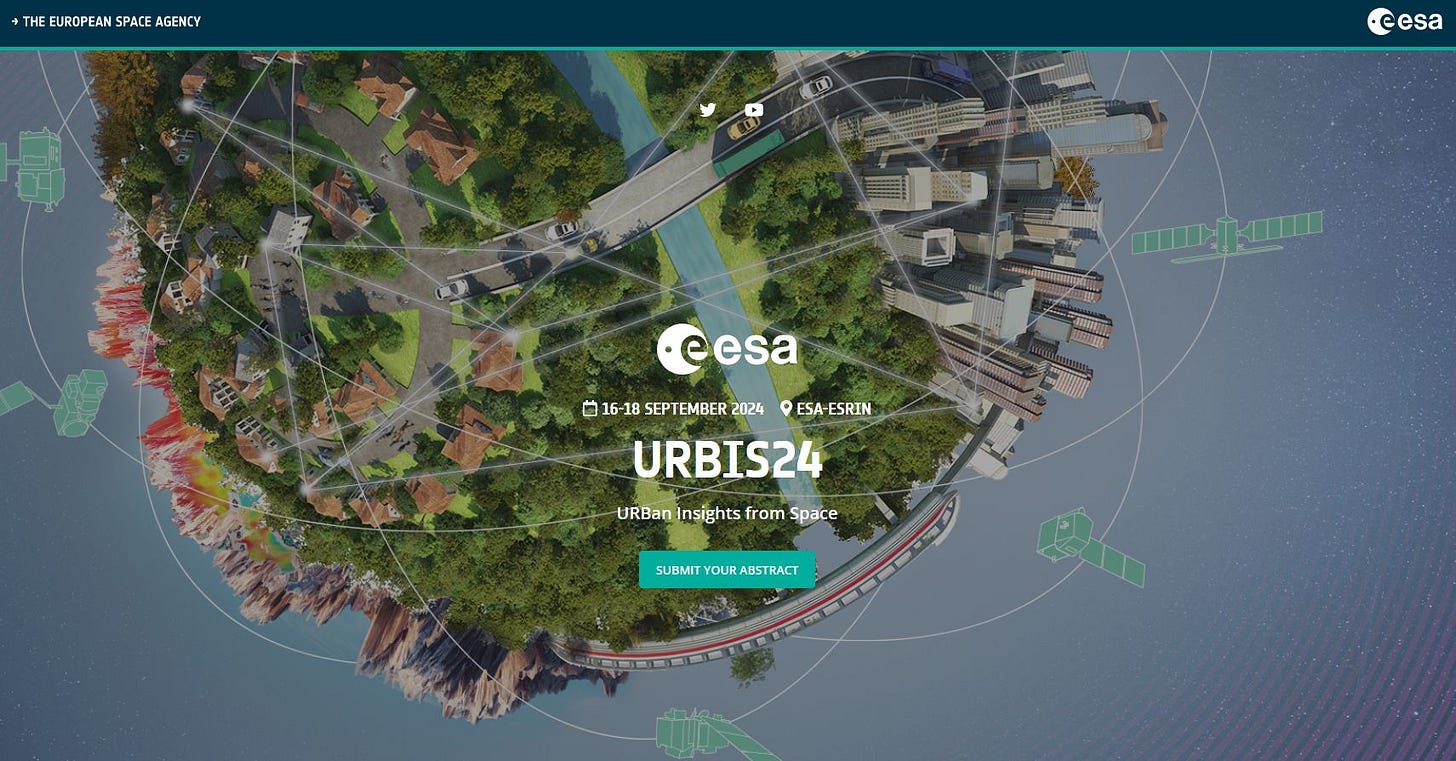Level-2 News
ESA’s 2024 Budget Rises 10% to €7.8B [link]
"The European Space Agency budget will increase this year by 10% to €7.8B ($8.5B), the agency detailed at its annual press briefing.
The largest funding buckets are EO (30.5%), navigation (13.5%), and space transportation (13.3%). ESA plans to launch five imaging satellites this year, including two Copernicus EO satellites."
Europe's access to space 'guaranteed' after 'painful' lessons of Ariane 6 delay, says ESA head [link]
"Speaking in Davos, the head of the European Space Agency (ESA) was optimistic that Europe had emerged from an ongoing crisis after years of rocket delays.
"European access to space is again guaranteed," the director-general of the European Space Agency (ESA) declared in Davos, ahead of the highly anticipated inaugural launch of the delayed Ariane 6 rocket in the summer."
Exciting times ahead in 2024 for ESA's Earth Observation Programme [link]
Follow this post on LinkedIn by Simonetta Cheli, Director of ESA Earth Observation Programmes and Head of ESRIN, about the planned launches in 2024 and ESA’s new Earth Science Strategy to be unveiled around mid-2024.
Japan Launches Intelligence-Gathering Satellite For Disaster Preparedness [link]
"Japan launched a rocket carrying a government intelligence-gathering satellite in a significant move to boost its military surveillance and disaster response capabilities."
Data
Climate TRACE emissions database integrated into the Awesome gee-community-catalog [link]
"The database provides a comprehensive accounting of greenhouse gas (GHG) emissions based primarily on direct, independent observation. It includes every country and territory in the world and covers various emitting activities such as energy production, industrial processes, and land use. The data are derived from satellites, remote sensing, and other public and commercial sources, making it the most comprehensive and granular dataset of recent GHG emissions ever created. The inventory allows for transparent assessment of each country's progress toward emission reduction goals."
Climate Trace Global Emissions Data [link]
Snapshots
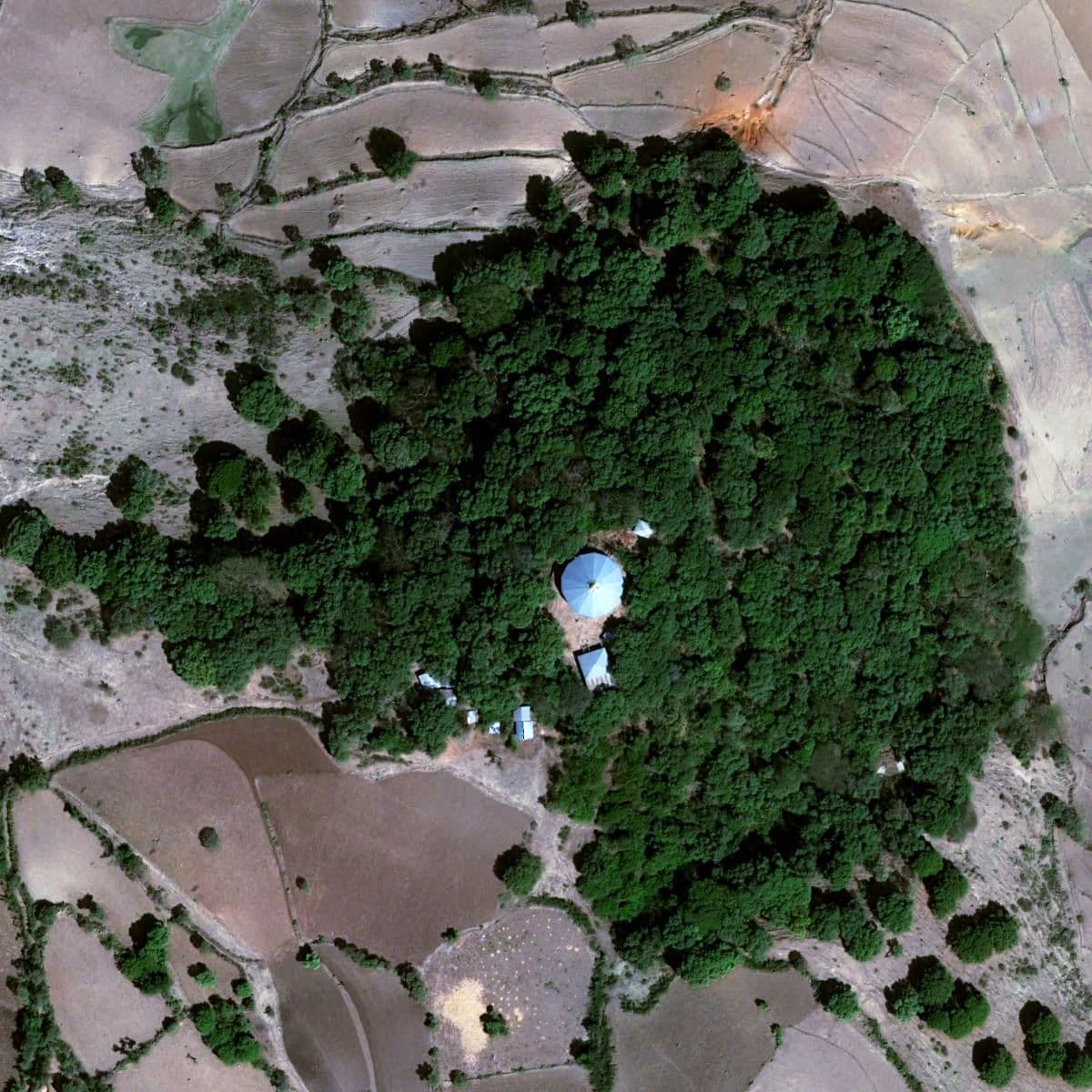
Forestry and Heritage: the Church Forests of Ethiopia [link]
"Over the past century, Ethiopia's Amhara region has witnessed the loss of 90% of its forests due to agricultural practices. Despite this extensive transformation, pockets of century-old tree groves persist, forming wooded islands that serve as home to burials, monasteries and Ethiopian Orthodox churches. This longstanding tradition, dating back to the 4th century, perserveres amid the changing landscape."
Planet Snapshots:
Energy: Fossil Fuels + Iron Rivers + Current Mystery [link]
In this week’s issue:
Fossil fuels
Orange rivers in Alaska
A river mystery in Colombia
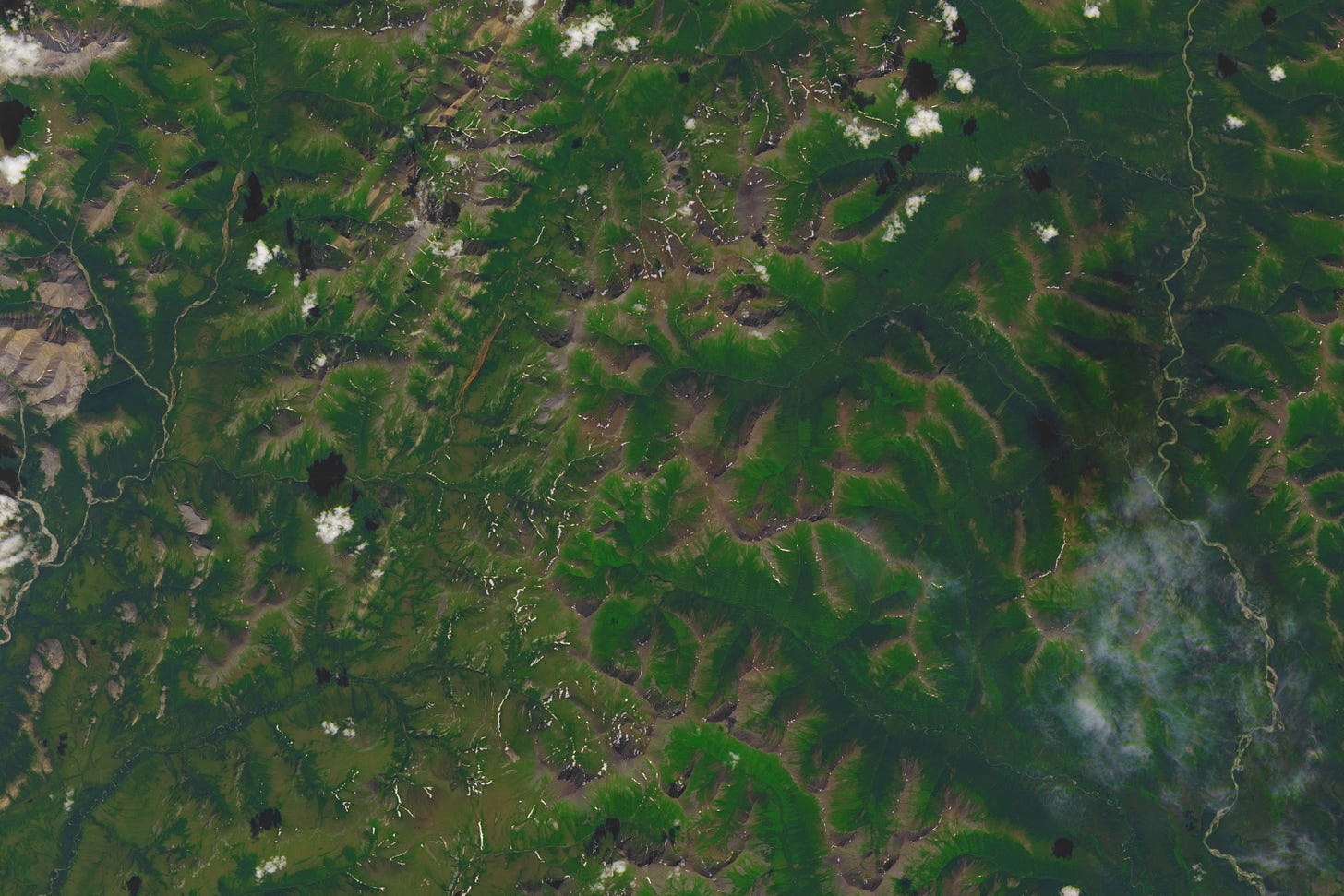
Rusting Rivers [link]
"Scientists are keenly aware that losing permafrost—the year-round frozen ground prevalent across the Arctic—generally does not bode well for the planet’s future. The thawing of this frozen layer releases the potent greenhouse gas methane, thereby feeding more warming and thawing, while also destabilizing the ground and potentially letting loose dormant pathogens.
Researchers suspect that thawing permafrost is also the cause of dozens of Alaskan streams turning orange. Along with the strange appearance of the water, they have found it tends to be higher in iron, lower in dissolved oxygen, and more acidic than nearby rivers that run clear."
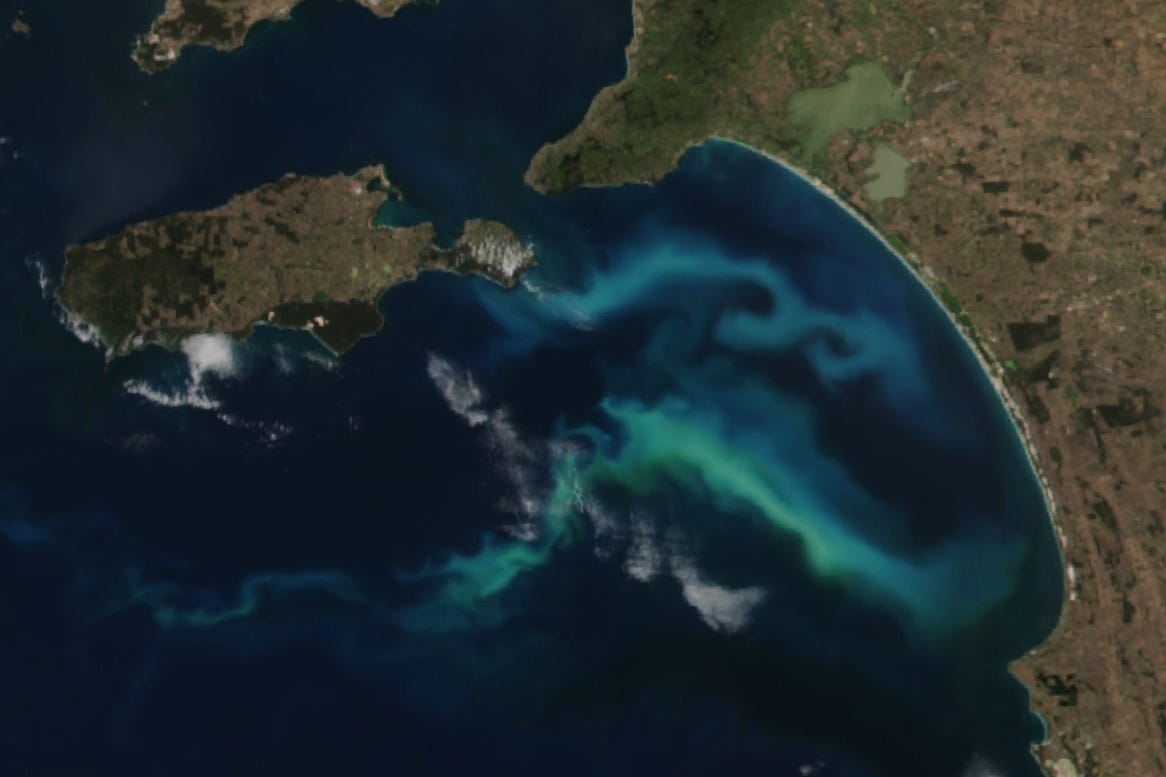
Filaments of Phytoplankton in Australia [link]
"When satellites passed over South Australia’s Bonney Coast in January 2024, they captured images showing splotches of blue and green swirling through surface waters. These colorful filaments of phytoplankton were blooming right on time. The microscopic plant-like organisms thrive here in the summer, when cold, nutrient-rich water wells up from deep in the ocean."
Interesting reads
NASA Analysis Confirms 2023 as Warmest Year on Record [link]
"Earth’s average surface temperature in 2023 was the warmest on record, according to an analysis by NASA. Global temperatures last year were around 2.1 degrees Fahrenheit (1.2 degrees Celsius) above the average for NASA’s baseline period (1951-1980), scientists from NASA’s Goddard Institute for Space Studies (GISS) in New York reported."
Related:
Five Factors to Explain the Record Heat in 2023 [link]
NASA Study: More Greenland Ice Lost Than Previously Estimated [link]
"A new, comprehensive analysis of satellite data finds that majority of glaciers on the landmass have retreated significantly.
Published in Nature on Jan. 17, the analysis offers a comprehensive look at retreat around the edges of the entire ice sheet from 1985 to 2022, drawing from nearly a quarter million pieces of satellite data on glacier positions. Of the 207 glaciers in the study, 179 retreated significantly since 1985, 27 held steady, and one advanced slightly."
Geospatial AI: A Powerful Tool in the Fight against Climate Change [link]
The article explores Geospatial AI and its role in addressing climate change. It highlights recent initiatives by companies like IBM, NASA, Microsoft, Esri, and Google, showcasing their geospatial AI solutions for applications related to climate-analysis.
Everything is (kinda) awesome (in Earth observation) [link]
Back in 2020, Adam Keith had writen an article "So, why hasn’t the Earth observation industry taken off (yet)". Three years later, he’s writing about what has changed (and what hasn’t) since; Some of the challenges the EO market faces today are the quite the same as in 2020.
Shifting from a B2G to B2B business has been a slow process - defense is still the largest consumer of EO data.
Expanding beyond defense, agriculture and oil and gas and further into finance, carbon trading and ESG has been challenging.
Investors don’t perceive EO as a "safe" industry and technology and there is a gap in language between the EO community and investors.
Follow the article for more, and maybe read the one from 2020, too.
So, why hasn’t the Earth observation industry taken off (yet)? [link]
Call for Papers
Call for papers for the Agriculture Under Pressure 2024 Workshop [link]
"The European Space Agency (ESA), the European Commission (EC), the World Food Programme (WFP) and GEOGLAM are co-organising the EO for Agriculture Under Pressure 2024 Workshop bringing together the large community working on EO-based science and solutions for agriculture as well as users, including scientists, data and service providers, national and international agencies and other institutions and organisations in order to present and discuss the state of the art, evolving needs, and priority areas for future projects of Horizon Europe and FutureEO. "
Abstract submission closure: 20 February 2024
Call for papers for the URBan Insights from Space (URBIS24) Workshop [link]
"The URBIS24 Workshop will gather a diverse community of urban policymakers, Earth Observation researchers and service providers and various end-users. Taking place at ESA/ESRIN in Frascati, Italy, during 2024 September 16–18, this event will offer an insightful exploration of urban challenges and innovative EO-integrated solutions."
Abstract submission closure: 30 March 2024


